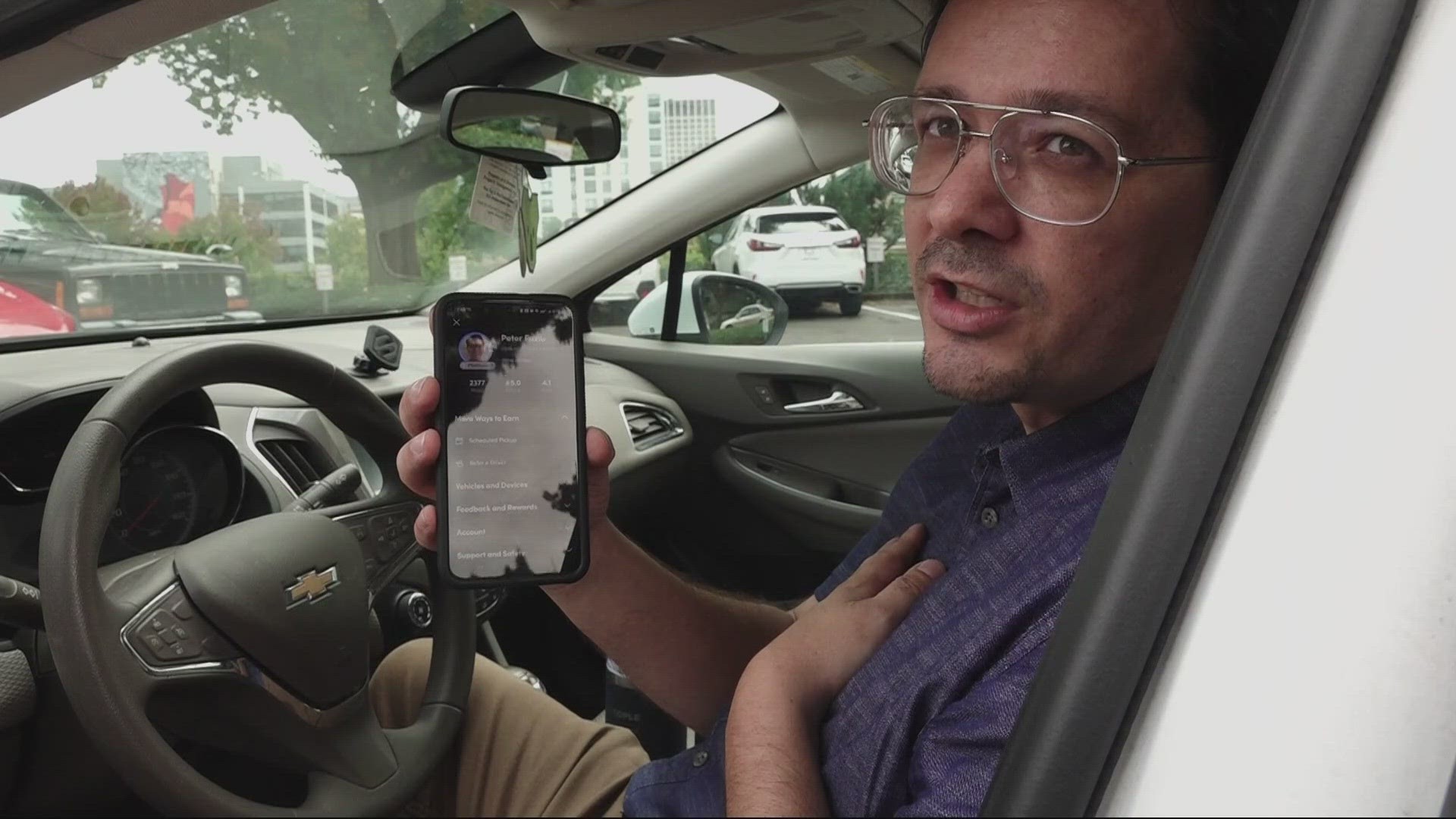PORTLAND, Oregon — Scammers are now targeting ride-share drivers across the country including in Portland. Victims said they’re now out hundreds of dollars without a way to get their money back.
“I know scammers are out there, but I did not expect this to hit me on Lyft, not at all,” said Peter Fazio, one of the latest ride-share drivers who has fallen victim to scammers posing as someone with the company. “They used all the lingo,” added Fazio. “They were very professional.”
Fazio has been a full-time Lyft driver for the last year in Portland. He has made over 2,400 rides and has a five-star rating. He never thought he would be a victim.
As of last year, Fazio is one of about 6,500 Uber, Lyft and taxi drivers in the Rose City. It’s a popular way for many to make a living, but now some drivers are reporting getting scammed by people posing as part of the Lyft support team. Scammers are reaching out and asking drivers for personal information and in some cases, like Fazio’s, a verification code to access their phones.
“We’re going to ask you to verify some of your information,” recalls Fazio. “I’m going to send you a code and I will need you to read it back to me to verify that you got it. This was the crucial moment because that is what they used to get access to my account.”
The scammers wiped his account clean in seconds, pocketing more than $600.
“I was almost in a blind rage because I was so upset over how this had happened and I blamed myself,” said Fazio. “I still blame myself a little bit. Like, I was the dumb person who fell for it.”
But he’s not alone. Lyft drivers across Colorado and Florida are also sounding the alarm about nearly identical storylines they received from their scammers.
“It’s a scam that has been around now for several years really gaining popularity and I don’t see any signs of it slowing down,” says Kerry Tomlinson, a tech reporter with Ampere News.
She says, she has heard more of these ride-share scams that involve a multi-factor authentication code that ultimately gives thieves access to your phone and accounts like Lyft.
“You never want to give people a code that shows up on your phone,” Tomlinson said. “That is only for typing into the actual website or platform that you’re using.”
According to Lyft’s website, Lyft employees will never call, text or email asking for personal info unless you reach out first.
“We have to detach ourselves from the concept that whatever the phone tells us who the person is ... is actually real,” Tomlinson said.
Despite this frustrating situation, Fazio will continue driving for Lyft but hopes to bring awareness to other ride-share drivers.
“I did not expect this to happen. You know?” Fazio said. “I expect to get scammed when I go to Las Vegas. I don’t expect to get scammed when I’m just doing what I do every weekend in my hometown.”
A spokesperson with Lyft tells KGW they're aware of this scam and are looking into Fazio's case. As for Fazio, he's still waiting to hear back from Lyft on if he'll be compensating for his losses.

